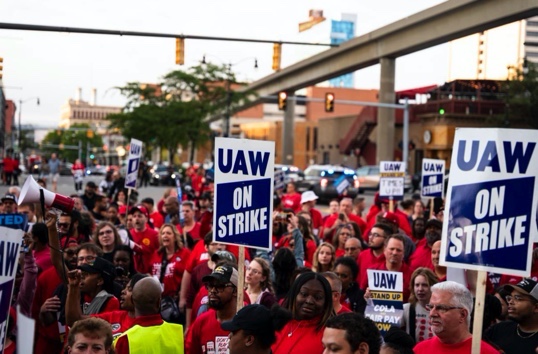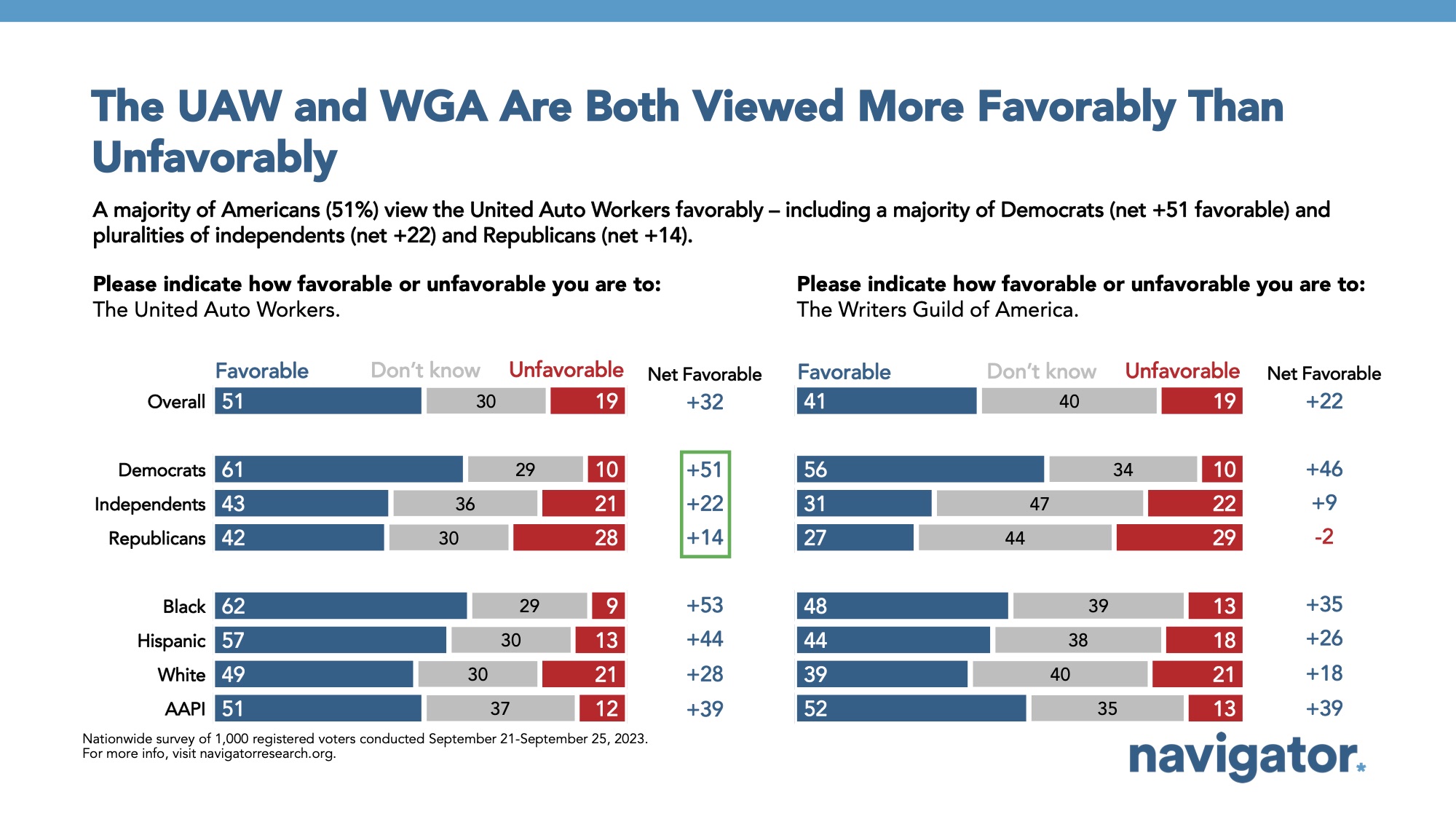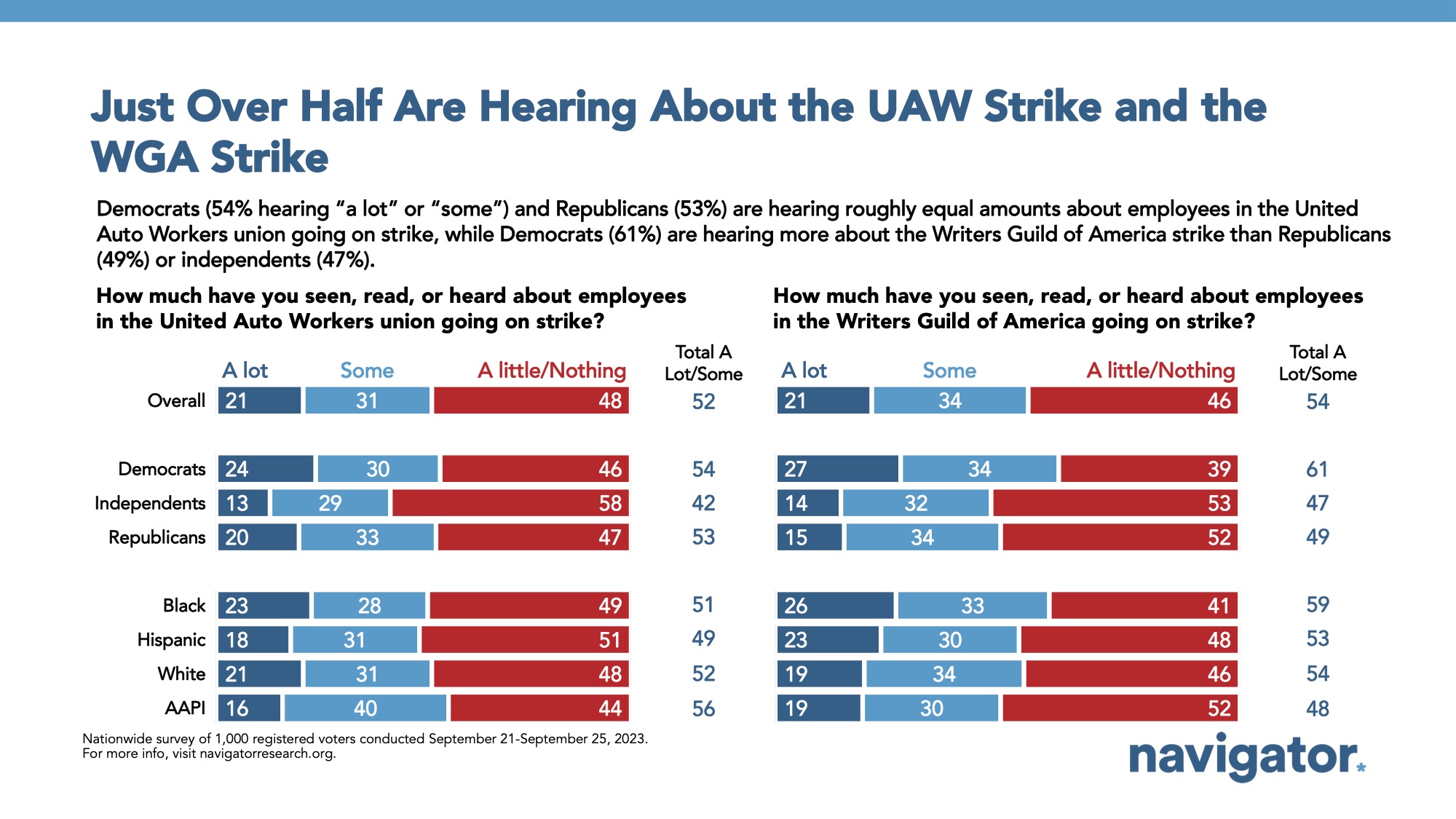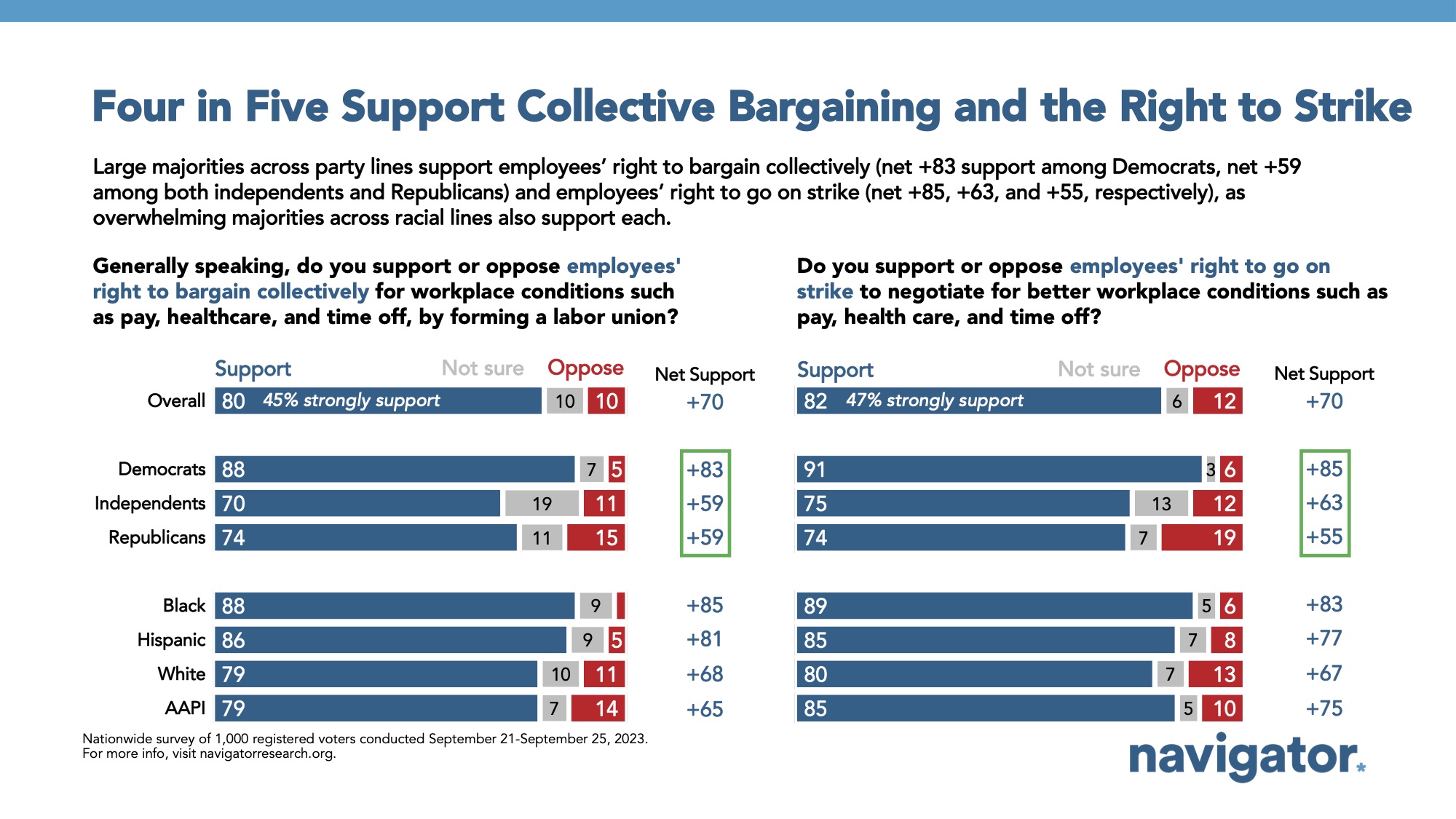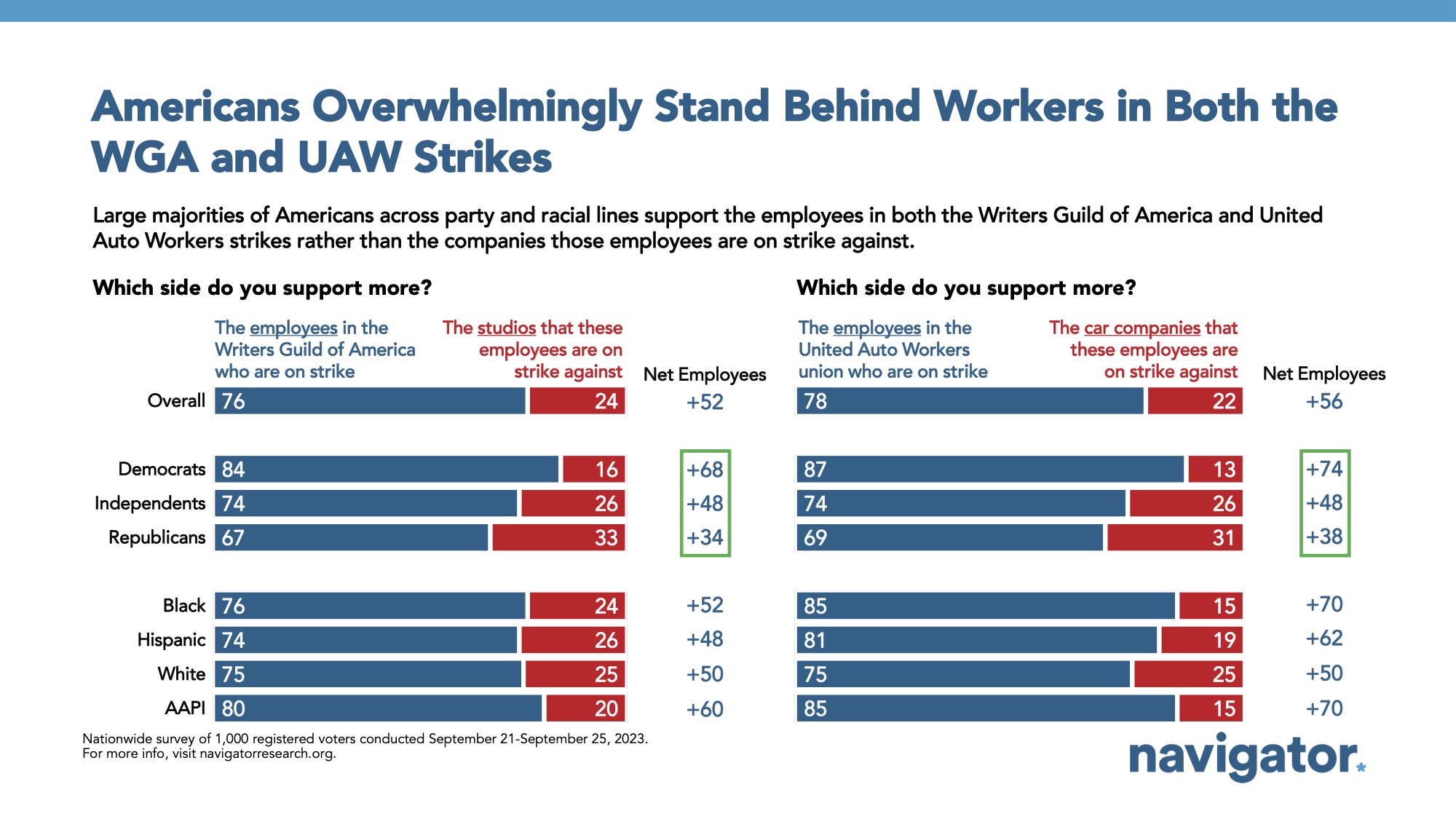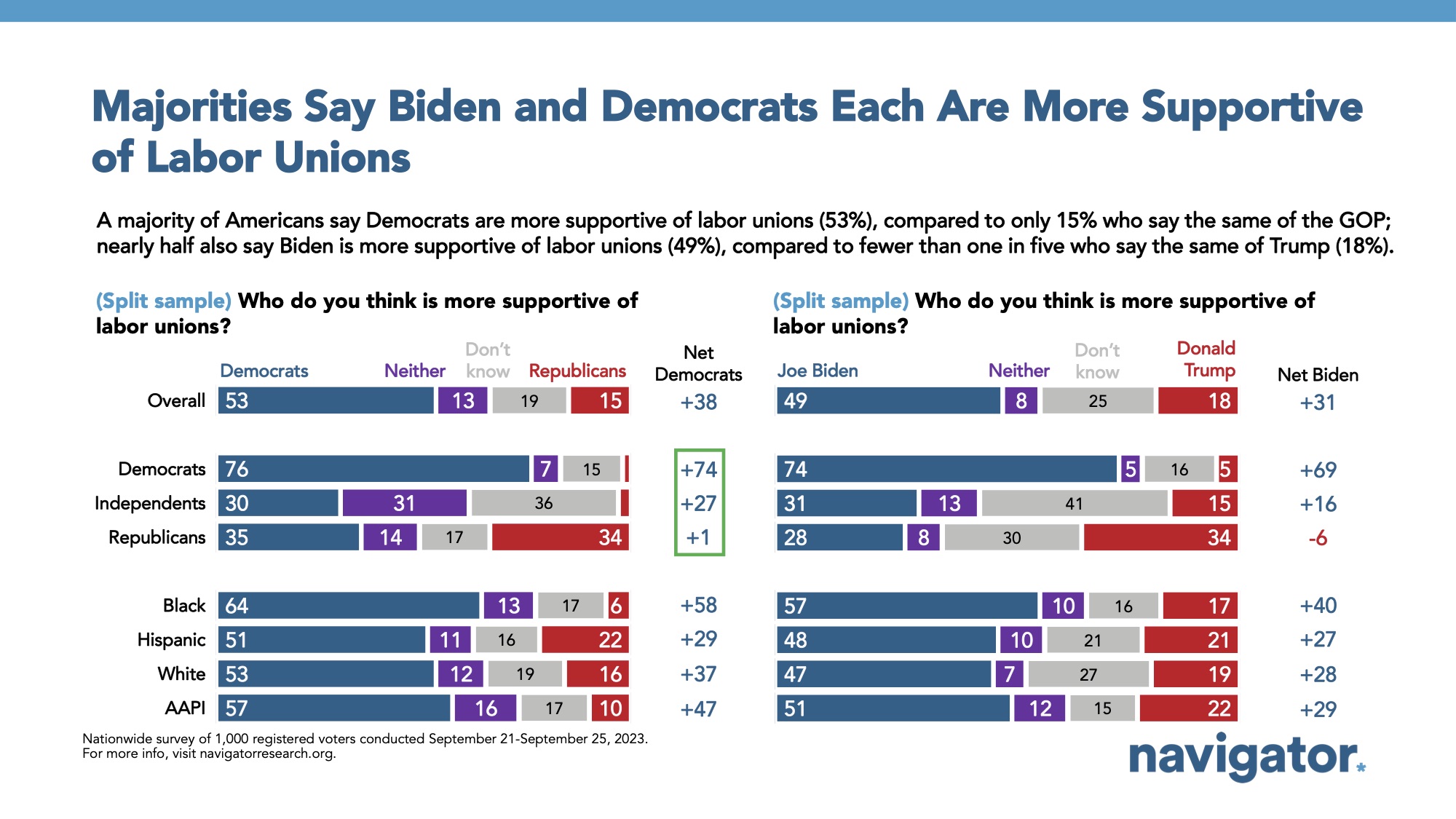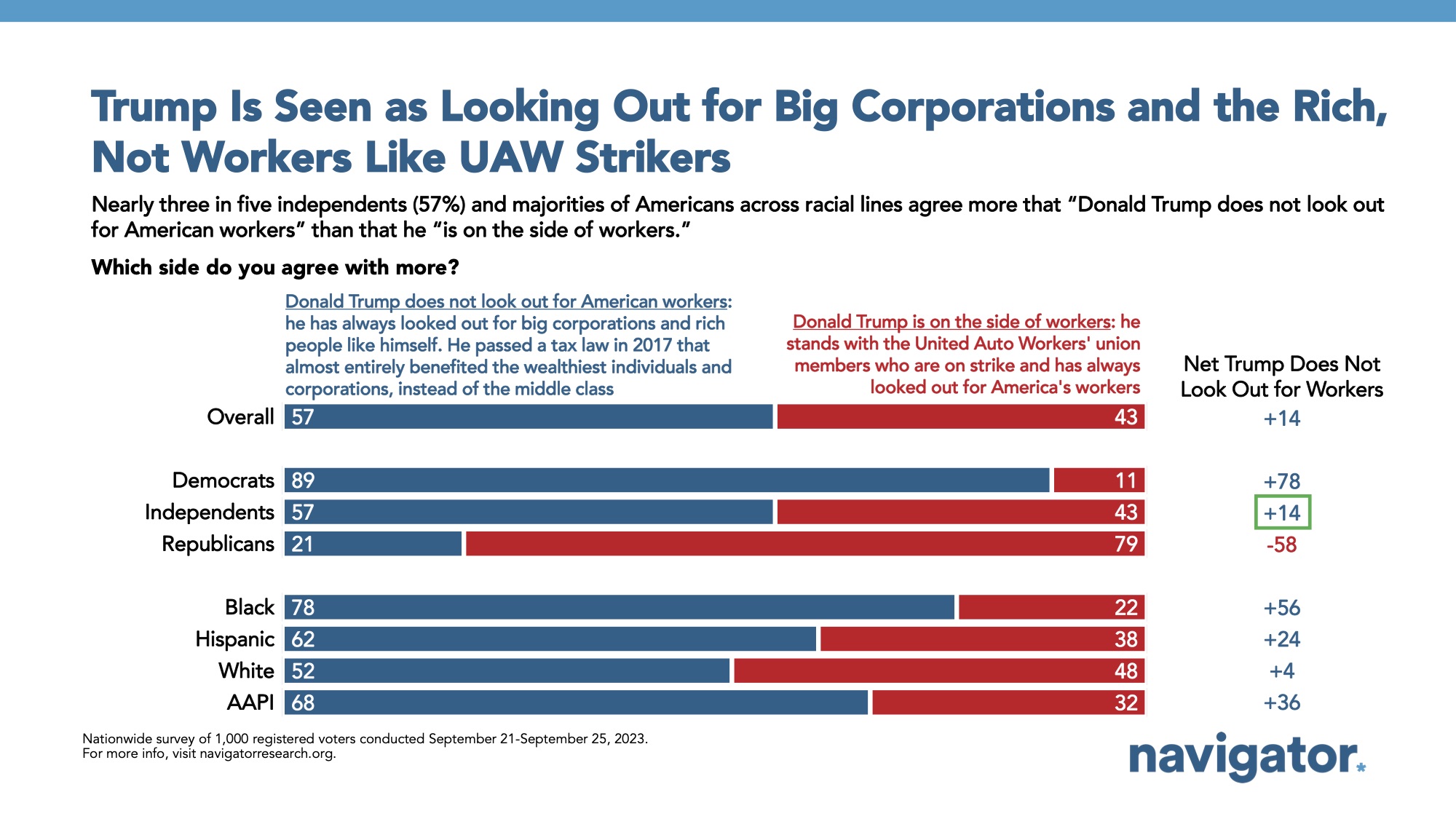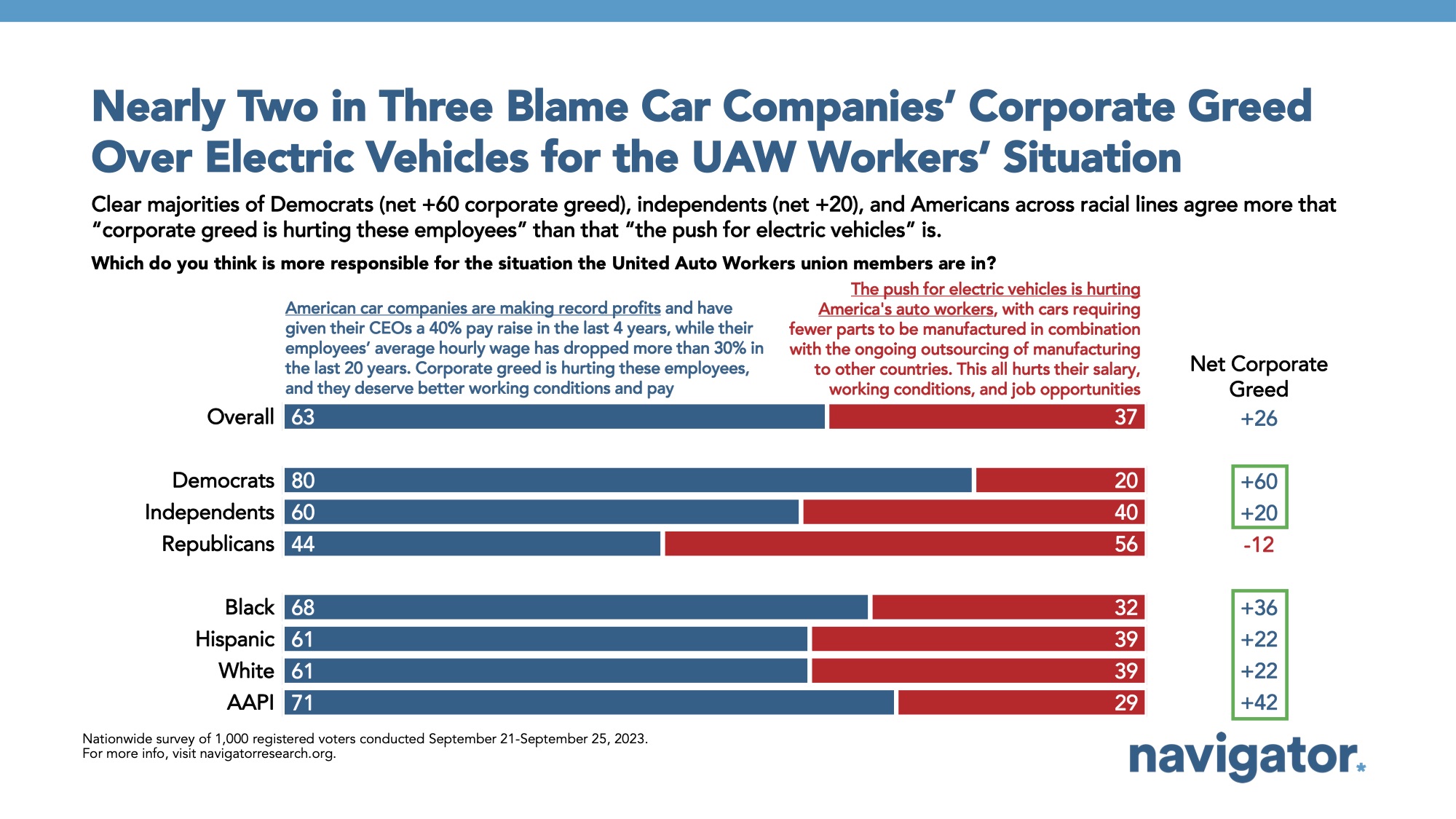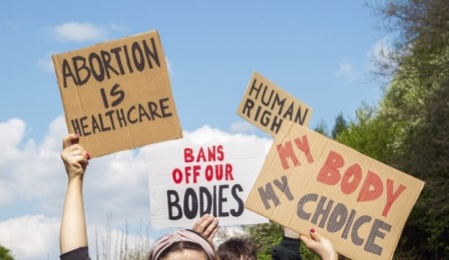Poll: Most Americans Are Favorable Towards Unions
This Navigator Research report contains polling data on Americans’ on attitudes towards the United Auto Workers and Writers Guild of America strikes, tracking on support for unions and employees’ rights, and views about which political party is seen as most supportive of unions and workers.
Most Americans are now aware of the United Auto Workers and Writers Guild of America strikes.
Amid the United Auto Workers strike and the recent end to the Writers Guild of America strike, most Americans are now aware of strikes and support the employees striking over the car companies and studios they are on strike against. Half of Americans now say they have heard about both the UAW and WGA strikes (51 percent and 54 percent, respectively). Fewer than half of independents are aware of each (42 percent and 47 percent, respectively), while Americans living in a household with someone in a union are more likely to have heard about the strikes (68 percent and 65 percent, respectively).
- Over half of Americans also say they have favorable views of the UAW (net +32; 51 percent favorable – 19 percent unfavorable) and a plurality hold favorable views of the WGA (net +22; 41 percent favorable – 19 percent unfavorable). Unions as a whole are also viewed favorably amongst most Americans (net +30; 57 percent favorable – 27 percent unfavorable), including among independents (net +19; 47 percent favorable – 28 percent unfavorable) and even a plurality of Republicans (net +4; 44 percent favorable – 40 percent unfavorable).
- While Democrats and Republicans are equally as familiar with the UAW (71 percent and 70 percent, respectively), 61 percent of Democrats have favorable views of the union, compared to only 42 percent of Republicans. 56 percent of Democrats are favorable towards the WGA, while only 27 percent of Republicans say the same.
Americans continue to overwhelmingly support the employees’ right to bargain collectively and to go on strike.
Four in five Americans support the employees’ right to bargain collectively for workplace conditions such as pay, health care, and time off, by forming a union (80 percent) and is supported across party lines, including from 91 percent of Democrats, 75 percent of independents, and 74 percent of Republicans. A similar share supports employees’ right to go on strike to negotiate for better workplace conditions. When it comes to the specific UAW and WGA strikes, nearly the same shares support the employees striking against the UAW and WGA over the car companies and studios they are striking against (78 percent UAW, 76 percent WGA). While Democrats are the most likely to side with the unions over corporations (87 percent with UAW, 84 percent with WGA), support for striking workers transcends party lines, with most Republicans saying they support both the UAW and WGA workers more than the companies and studios they are striking against (69 percent and 67 percent, respectively).
- Among Americans living in a household with a union member, 86 percent support the right to collective bargaining and 85 percent support the right to strike. Among households without a union member, the right to collective bargaining also earns strong support (79 percent), as does the right to strike (81 percent).
Most agree Trump does not look out for American workers.
A majority view Biden and Democrats as more supportive of labor unions compared to Republicans, and feel Trump is looking out for big corporations and the rich as opposed to America’s workers. By nearly 40 points, over half of Americans say the Democratic Party is more supportive of labor unions (53 percent) while just 15 percent say Republicans are more supportive. When asked in a separate question whether Trump or Biden is more supportive of labor unions, 49 percent say Biden is more supportive and 18 percent say Trump. Similarly, over half of Americans agree that Trump does not look out for American workers and has always looked out for big corporations and wealthy individuals like himself (57 percent), while just 43 percent agree that Donald Trump is more on the side of workers. 89 percent of Democrats, 57 percent of independents, and 21 percent of Republicans agree more that Trump does not look out for American workers, as do 62 percent of women and 51 percent of men.
- Majorities across income groups agree more that Donald Trump prioritizes large corporations and the wealthy over American workers, including 58 percent of those living in households earning less than $50,000 per year, 55 percent of those living in households earning between $50,000 – $100,000 per year, and 57 percent of those living in households earning more than $100,000 agreeing.
As tensions continue to rise in the United Auto Workers strike, nearly two in three Americans are placing the blame more on car companies’ corporate greed.
When asked who is more responsible for the situation the United Auto Workers are in, Americans agree by a near two-to-one margin with a statement that “American car companies are making record profits and have given their CEOs a 40% pay raise in the last 4 years, while their employees’ average hourly wage has dropped more than 30% in the last 20 years… corporate greed is hurting these employees, and they deserve better working conditions and pay” (63 percent) over a conservative argument that “the push for electric vehicles is hurting America’s auto workers, with cars requiring fewer parts to be manufactured in combination with the ongoing outsourcing of manufacturing to other countries… this all hurts their salary, working conditions, and job opportunities” (37 percent). 80 percent of Democrats, 60 percent of independents, and 44 percent of Republicans agree more with the progressive statement that corporate greed is most responsible, as do 64 percent of those living in a union household.
About The Study
Global Strategy Group conducted public opinion surveys among a sample of 1,000 registered voters from September 21-September 25, 2023. 105 additional interviews were conducted among Hispanic voters. 75 additional interviews were conducted among Asian American and Pacific Islander voters. 104 additional interviews were conducted among African American voters. 102 additional interviews were conducted among independent voters. The survey was conducted online, recruiting respondents from an opt-in online panel vendor. Respondents were verified against a voter file and special care was taken to ensure the demographic composition of our sample matched that of the national registered voter population across a variety of demographic variables.
